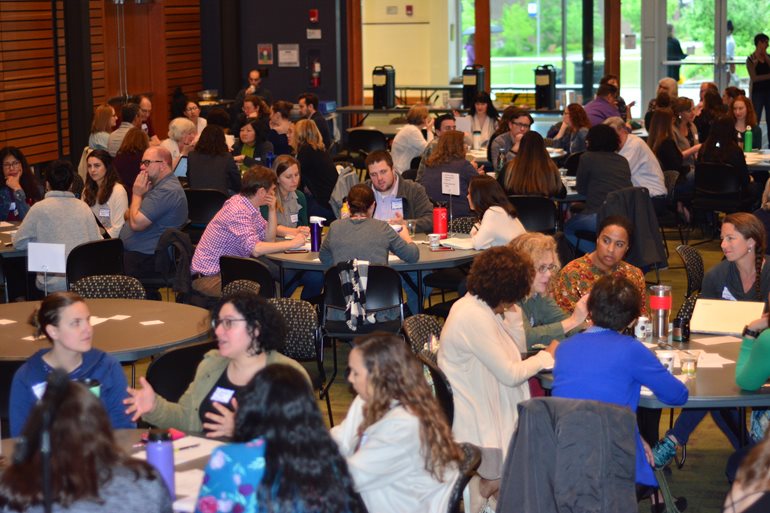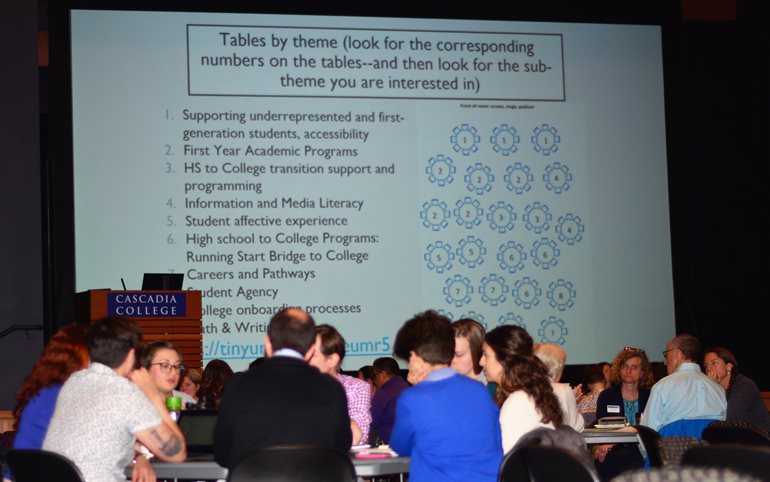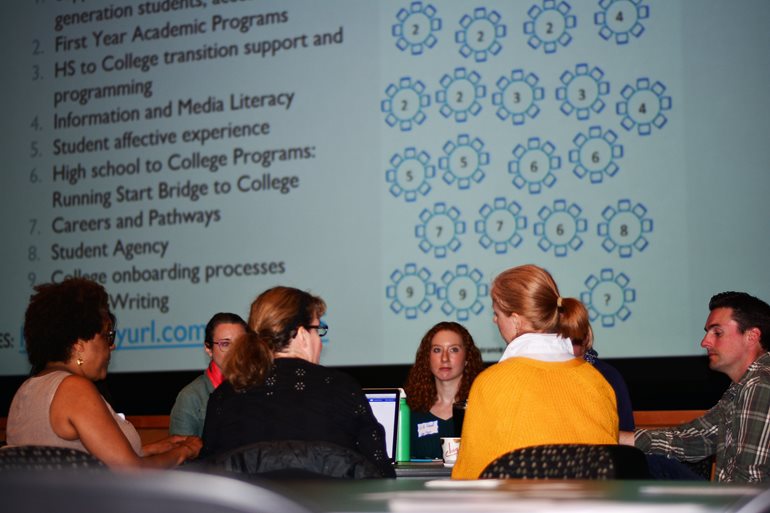
About 120 educators, counselors, advisers and librarians from regional colleges and high schools attended the Transitions Unconference at Mobius hall to discuss how to help students succeed in college.
Working across institutional boundaries, participants shared their experiences and best practices for the high-school-to-higher-education transition. The gathering May 24 was organized as an unconference — with a minimum of scheduled talks — to maximize opportunities for personal connections and discussions, said Laura Dimmit, one of the planners and a research and instruction librarian at the University of Washington Bothell and Cascadia College Campus Library.
In their role helping faculty teaching Discovery Core and research writing classes, librarians support students in that first-year transition. “We see a lot of students who are making that adjustment from high school to a college setting,” Dimmit said.

The conference brought together others in similar roles at UW Bothell and Cascadia, community colleges in Everett, Edmonds and Seattle, as well as the Seattle and Northshore school districts, and some from as far away as Yakima and Wenatchee.
One idea that was shared was to offer holistic support of students, beyond financial aid.
“That was a takeaway for me,” Dimmit said. “A lot of the solutions that people are developing look at the whole experience someone is having. It’s not just how they are doing in one class. It’s how they are doing in all of their classes. Do they need emotional support or social support or mental health support? And how can we make it easier for students to access all of those things?”

A panel of students moderated by Dean of Student Affairs Tim Wilson gave them the opportunity to offer advice to incoming classmates: Explore courses beyond your initial goal.
“Take advantage of all the immersive opportunities, rather than staying in the lane that you started in,” Dimmit summarized.
The unconference participants left with new connections and insights into how others approach problems of student transition. “Our job is to help them navigate that and help them gain the skills that they need,” Dimmit said.



